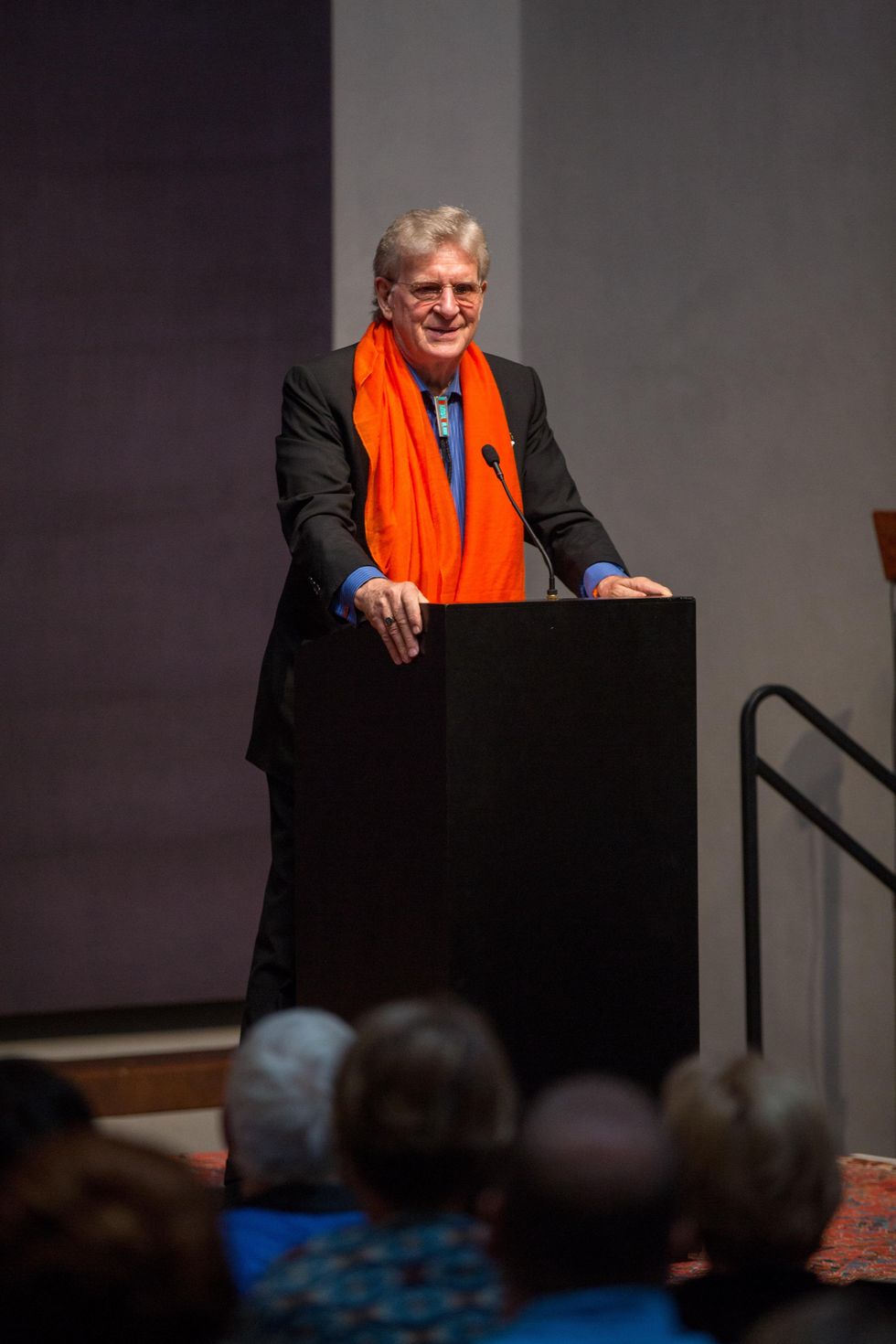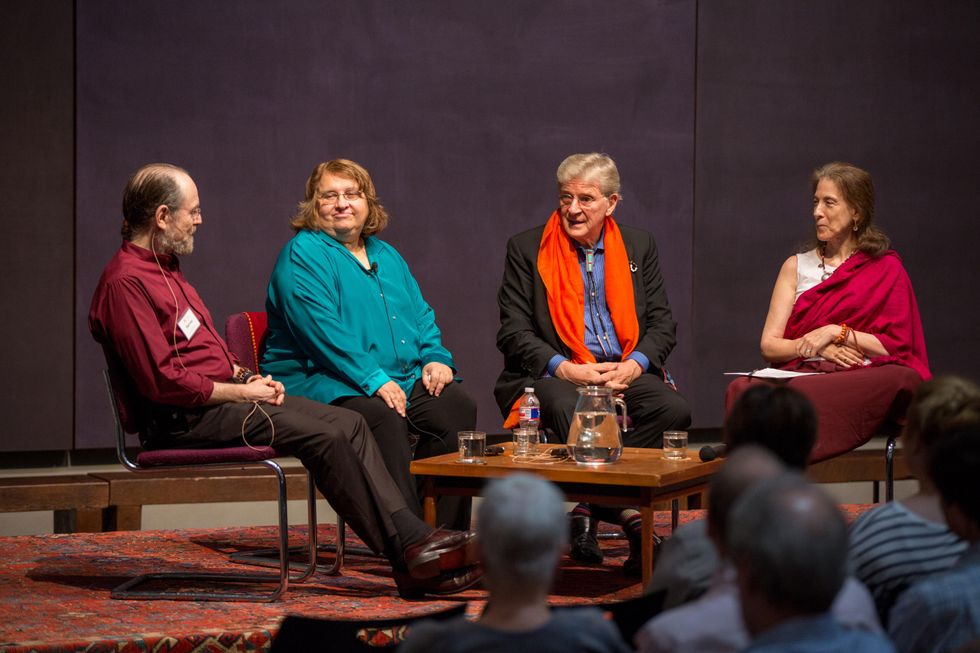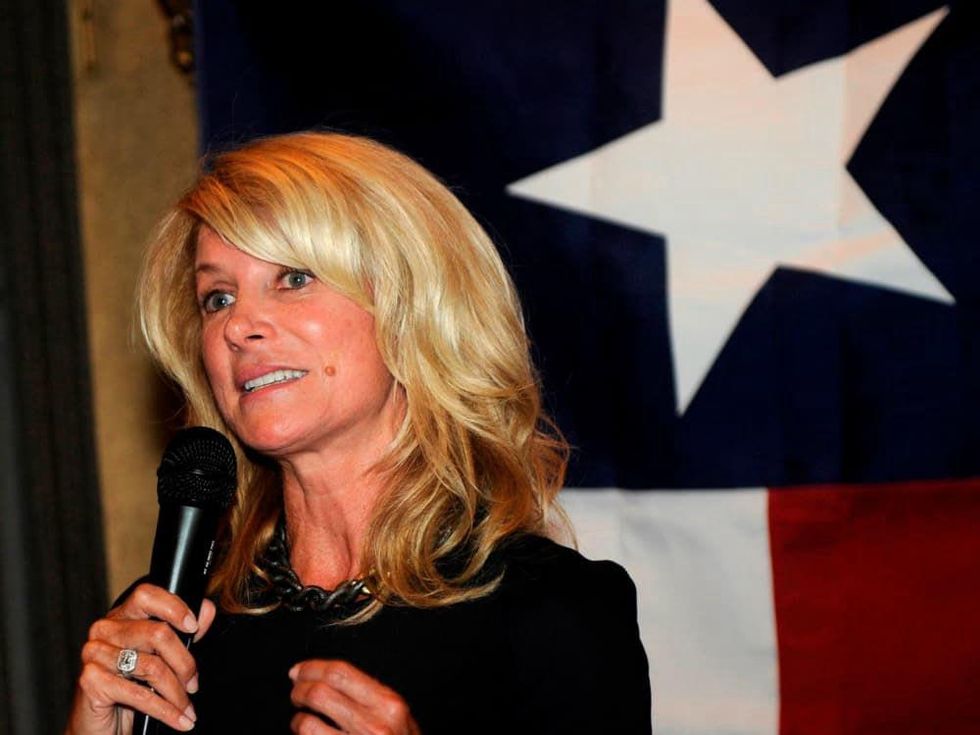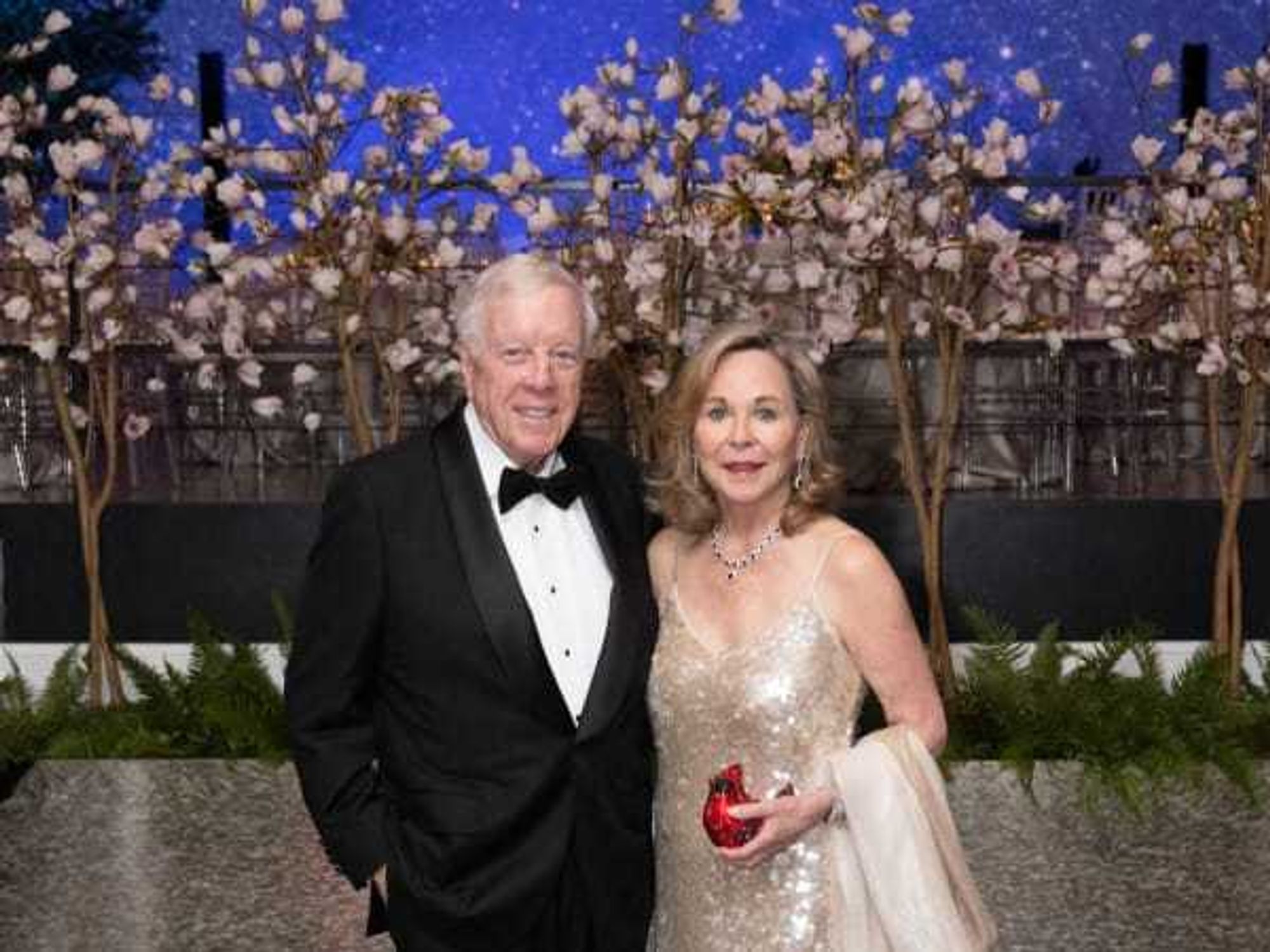Love Your Enemies & Vote
Spiritual scholar (and Uma's father) explains how to love your enemies and vote for Wendy Davis
In a world of war, disease and really nasty Internet comments on just about everything, it's getting harder and harder to love your enemies. But that's what we should so, according to noted Buddhist scholars Robert Thurman and Sharon Salzberg, who have co-authored a book, Love Your Enemies: How to Break the Anger Habit.
The dynamic duo recently were in Houston for a day-long seminar co-sponsored by the Rothko Chapel as part of its ongoing series on nonviolence and Dawn Mountain, a Houston-based center for Tibetan Buddhism.
"Our message is love your enemy. Now, that doesn't mean we want to have Rick Perry flogged. We love him because we don't want him to do any more damage."
Thurman and Salzberg, who teach the seminar in New York a couple of times a year but rarely go on the road with it, are a complementary team. Thurman, professor of Indo-Tibetan Buddhist Studies at Columbia University, is impish and expansive, with long anecdotes to prove a point, while Salzberg, co-founder of the Insight Meditation Society, is more concise and practical.
(Thurman has a Houston tie, as he was once married to Christophe de Menil, the daughter of Menil Collection founder Dominique de Menil. "I remember the first time I saw the Dalai Lama celebrated by a large group of Vietnamese was in Houston when he came down for Dominique years ago," Thurman recalled. He has a celebrity angle, too, as he is the father of actress Uma Thurman.)
We caught up with Thurman and Salzberg before the seminar to learn what controlling our anger is all about.
CultureMap: What do people learn from a seminar like this?
Robert Thurman: I hate my enemies. Therefore, I have to love them to death.
CM: So is it OK to be angry?
Sharon Salzberg: I always make the distinction between feeling something and having it and being so lost in it that it motivates our action. Those are two very different things. We feel what we feel, and of course this can be anger or outrage or whatever, but whether it carves out our decisions and our actions and our choices is another question.
"We feel what we feel, and of course this can be anger or outrage or whatever, but whether it carves out our decisions and our actions and our choices is another question."
RT: That's where the meditation of the mindfulness that Sharon is so good at is so important. It enables the person to understand they are so angry and not just suppress it and have it poison them inside and become bitter and frustrated.
CultureMap: What do you learn from the people who take these classes?
RT: Poor old Jesus and Buddha must have really been freaked out because everybody sort of realizes that you should love your enemy. The meaning of love meaning not adore them for harmony but wish they were happy where they wouldn't bother or harm you. If your love is defined as wishing the happiness of the beloved, then it makes sense if they were happy they wouldn't be attacking you. You wouldn't be in their way. They would be happy by themselves.
Everybody says that but then nobody wants to do it. They want to be pissed off. So they look at your like you're a lunatic when you say, "Oh yeah, love."
SS: Another thing is people wherever they are, I think they are trying to find a path because people want not to bear the burden of all that rage. And yet they don't want to be a doormat and give in. They want to stand up.
RT: That's their main fear because Christianity has been taught in such a way that the subliminal message of it is every church has a crucified Christ in there. So that's what happens when you love your enemy.
CM: What would be the one or two takeaways from the seminar that would be good to know?
RT: Vote for Wendy Davis. That's No. 1.
CM: How come?
RT: Because our message is love your enemy. Now, that doesn't mean we want to have Rick Perry flogged. We love him because we don't want him to do any more damage. And we would like him to be happy, riding his motorcycle, wearing his boots, shooting up the roadside, whatever he would like to do. But not any longer. These cowboy guys have not been helpful to the country.
"I think women, and that woman in particular, will turn things back in a more intelligent direction."
I think women, and that woman in particular, will turn things back in a more intelligent direction. Even the Dalai Lama says his next life he's likely be a woman. Men have been ruling the world militarily and they're running it off a cliff. They're just trying to keep the 20th century going.
So my main takeaway is learn to how your mind works. Observe yourself to help mindfulness. Figure out how your habitual reactivity patterns are making you unhappy and get happier. And then me? My takeaway is just go crazy and vote for Wendy Davis.
SS: I'd say don't think of compassion as a weakness. And maybe don't think of anger as such a great strength.
CM: How do the two of you control your anger and channel it into positive directions?
SS: For me the most important thing is to notice it quickly rather than have it steam along. My example is always when you get angry and you don't quite realize it, and you go off to the computer and you type out an email and press send. And two hours later you go, "Whoops."
"My example is always when you get angry and you don't quite realize it, and you go off to the computer and you type out an email and press send. And two hours later you go, 'Whoops.'"
And as Bob says, practice mindfulness (meditation). It doesn't take years necessarily, it's practicing mindfulness and becoming more aware.
CM: How long does it take?
SS: I don't think it takes long to notice what you're feeling and then having a more balanced relationship to the feeling. Realizing I don't have to dive into every feeling that comes up. I also don't have to fight it and try to repress it. There's a middle place in just recognizing. And that creates some space. Then in that space you can make some decisions. Go write the email and not press send right away.
RT: The great 8th century Buddhist writer Shantideva says the fuel of anger is frustration. When you see something happening that you don't think should happen or something that you do think should happen gets impeded and blocked and then you're frustrated because of that. And then you nurse that frustration and then you explode. And then the anger will make you a tool and then you will hurt yourself or another. Or overreact.
So the key that he teaches is do something vigorous about the situation before you're angry. When you see it going in the direction you don't want then do something. This is very valuable, especially for women in our culture, who are socialized to be polite past a certain point. Don't let it build up.
And then he ends with this thing, saying if you can do something about a bad situation, why get upset about it? If you can't do anything about a bad situation, why get upset about it on top of that? Be of good cheer type of thing. Guard you cheerfulness and get out of the situation or do something vigorous about it before you freak out.




